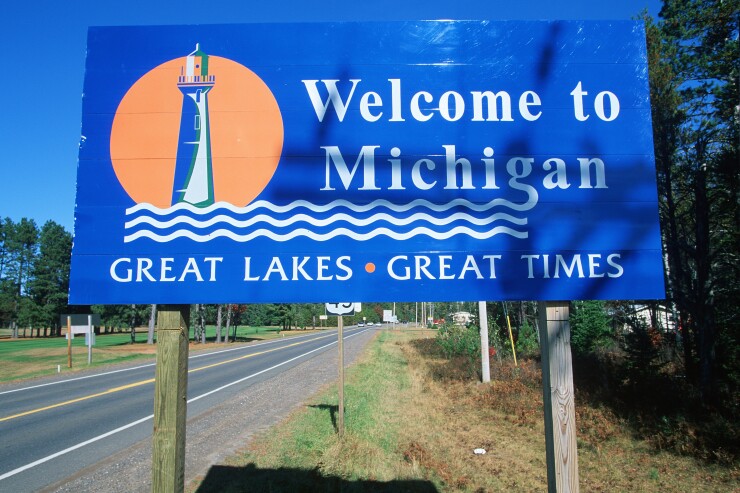Michigan plans to use a new statewide asset management database to get a more detailed picture on which water and highway infrastructure crises need to be addressed first.
Gov. Rick Snyder on Monday signed into law legislation that creates two infrastructure councils in charge of creating the database and producing a 30-year infrastructure investment and management strategy.

The councils will work across various state agencies to get a complete picture of infrastructure needs in real time and be able to update that picture as time goes on.
Craig Thiel, research director for the Citizens Research Council of Michigan, a not-for-profit public affairs research organization, said that assuming the next governor of Michigan is on board with the program, it is likely that the councils will come forward with some recommendation on how to address some of the problems. Snyder has six months left in office.
“As dollars become viable I think putting them to the highest need is going to be critical, and this council is tasked with doing this,” Thiel said.
“This legislation will help the state develop a unified and coordinated approach to asset management and infrastructure issues,” said Tanya Baker, a spokeswoman for Snyder. “Through the creation of a statewide asset management database and protocol, local governments can better plan for and ensure more sustainable investments in infrastructure projects.”
Baker said that local governments with adequate asset management plans will be able to utilize the new system to leverage resources and better articulate future needs to their residents.
The legislation creates the Michigan Infrastructure Council and the Water Infrastructure Council.
The Michigan Infrastructure Council will collect statewide data on the state's infrastructure systems and build a database that will eventually inform a 30-year strategy for investment and management. The Water Infrastructure Council will focus specifically on water systems such as drinking water, wastewater and stormwater, and build a template for water asset management plans by Oct. 1, 2019.
Thiel said that the councils formalize the Transportation Asset Management Council created in 2012, which had previously existed to deal with transportation issues only.
“When you are behind at least the way Michigan is you have to begin by prioritizing projects and investments,” said Thiel. “Doing that with data-driven decision model is key and that is what the council would be working towards doing.”
Michigan is facing ballooning infrastructure costs. A panel of experts appointed by Snyder after the Flint water crisis said that the state needs to come up with at least $4 billion more each year for decades for upkeep of roads, bridges, water and sewer systems, and communications infrastructure.
“That is a pretty rough estimate, but hopefully this process will help us understand what those numbers really are,” Michigan State University economist and former deputy state treasurer Eric Scorsone said. “There is still a large gap between where we are and where we need to be. The question of who will pay and how — all that still has to be worked out.”
Scorsone said the issue of financing is not as clear cut because it is ultimately controlled by the legislature.
“There has been some discussion on new tipping fees and water fees to pay for these, but I think there are still a lot more political questions over what is even feasible to pass. So that part is much more open-ended still,” Scorsone said. Scorsone said it could take as long as two years for the councils to collect the data.
Scorsone’s last day as deputy state treasurer was June 29. Anne Wohlfert has been named the acting deputy treasurer. Wohlfert is also the administrator of the Bureau of Student Financial Services within the Treasury.





